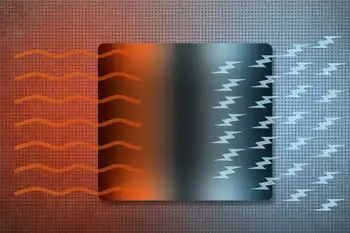First gasification facility in Canada looks at Alberta
By Whitecourt Star
CSA Z463 Electrical Maintenance -
Our customized live online or in‑person group training can be delivered to your staff at your location.

- Live Online
- 6 hours Instructor-led
- Group Training Available
Chickadee Creek Energy Inc., an Edmonton-based company specializing in biomass-energy technologies, and Millar Western are proposing the construction of a 24-megawatt biomass-energy facility using Taylor Gasification technology.
Biomass is organic matter that can be converted to fuel. In this case, the biomass is slash, which is unused wood residues like treetops and branches that accumulate when wood is harvested. Slash cannot be left on-site since it represents a fire hazard, so it is collected and burned. Instead of burning the slash, Taylor Gasification technology will use the wood waste to generate nearly twice the energy per ton of biomass, as compared to conventional boiler technology, with half the greenhouse gas emissions.
Project director Jack Joys said the project is an example of distributive energy.
“It’s produced here and it can be consumed here,” he said. “You don’t have to have wires all over the place.”
Millar Western environmental leader Jeff Shipton said the project is coming at a time of increasing focus on lowering greenhouse gas emissions.
“With this kind of technology we’re getting a lot lower CO2 emissions per megawatts, lower than a conventional boiler technology and a lot lower than coal-fired power plants,” he said. “So what you get is a cleaner burning fuel per megawatt.”
Shipton said when biomass is burned, unused potential energy is released into the air. “It is just piled and burned and released into the atmosphere with no benefit, but all that biomass has an inherent worth in it,” he said. “We want to recover that.”
The gasification technology produces a synthesis gas that, in turn, is able to directly fire a gas turbine to generate electricity. The plant would potentially use 272 tons per day of wood waste from Millar WesternÂ’s harvesting and manufacturing operations. Millar Western wood waste would be diverted to the on-site facility, rather than shipping it to Whitecourt Power eliminating about 8,000 truckloads each year.
Approximately five million tons of slash is created annually in Alberta amounting to a potential 700 megawatts of electricity or enough to power half of Edmonton for one year.
“It’s a lot of power,” said Joys. “This area and north is the most congested line in all of Alberta from a transmission standpoint. So, if you can produce more of these plants in the north than you don’t have to rush to build expensive transmission lines.”
Joys said there are many benefits to having this type of facility in Whitecourt, including construction and operating jobs, expansion of forestry jobs and maintenance.
The construction phase of the project will provide as many as 175 jobs during peak times in Whitecourt. Once the facility is fully operational, 17 full-time operators and additional collection and maintenance contractors would be needed.
In order for the project to move forward, Millar Western is seeking to amend its environmental permit under the Environmental Protection and Enhancement Act.
Joys said that once funding for the approximately $100-million project is put in place, in addition to public approval and permit amendments, construction on the site could begin as early as this September.
Pending this start date, the facility would be operational by early 2011.
In terms of the environment, Shipton said the technology is a major step forward for the industry.
“It’s just taking the technology that’s out there and applying it to the biomass situation that we have here,” he said, adding that a variety of different materials can potentially be used including garbage. “It’s a greener technology.”
Joys said the project is a good example of diversification for the forest industry.
“I see it going everywhere there is forestry, but it’s not limited to that,” he said.
“We can handle municipal solid waste, so things like cardboard and paper products and things like that. There are lots of opportunity for fuel in this.”











